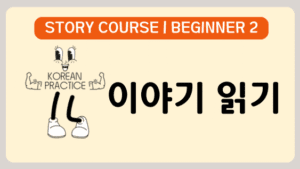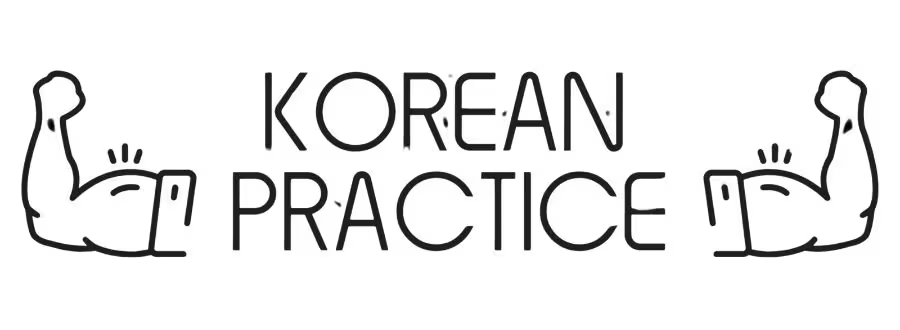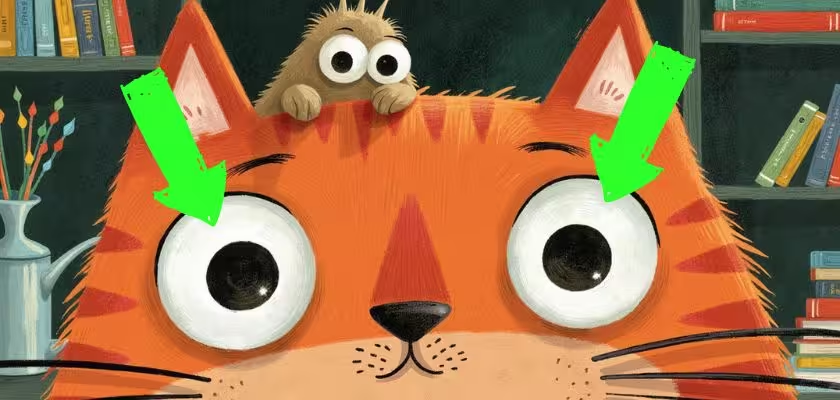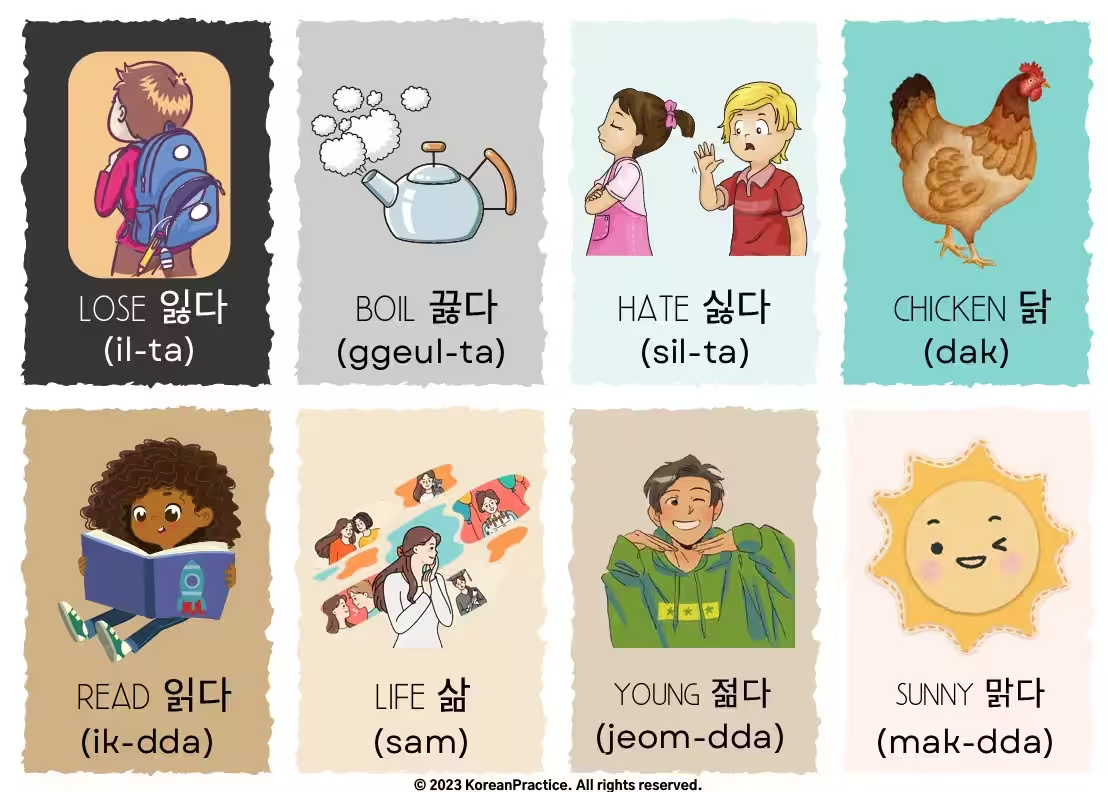Suh ChangWhoon
Written by 서 창훈, a certified Korean teacher with 14+ years of experience in Japan. He previously worked as a government officer, cybersecurity consultant, and English interpreter. Today, he teaches Korean in real classrooms without complex grammar explanations — instead, he trains students’ brains to speak naturally. His unique method is now the foundation of all his Korean courses.
Table of Contents
Have you ever wondered how to say eyes in Korean? In this post, we’ll explore the word 눈 (nun) and other useful eye-related expressions that are both beautiful and creepy—especially if you’ve seen our latest YouTube short.
Watch: Jiho’s Scary Night Story – 빨간 눈이 보여요!
In the video, Jiho is home alone at midnight. As he reads a book, he hears a sound from the window. When he looks up… he sees red eyes staring at him in the dark. 😱
Let’s dive into some Korean eye expressions based on this spooky story—and learn both everyday phrases and dramatic ones!
How to Say Eyes in Korean
The word for eyes in Korean is 눈 (nun).
눈 = eyes
눈이 예뻐요 = Your eyes are beautiful.
You can use 예쁘다 (to be pretty) to describe someone’s eyes.
For example:
Original Korean Sentence
그녀는 예쁜 눈을 가졌어요.
Pronunciation Guide
그녀는 (geu-nyeo-neun) 예쁜 (ye-ppeun) 눈을 (nun-eul) 가졌어요 (ga-jyeo-sseo-yo).
Meaning and Context
그녀는 (she [topic marker]) 예쁜 (pretty) 눈을 (eyes [object marker]) 가졌어요 (had).
English Translation
She has beautiful eyes.
Literal Translation
She had pretty eyes.
Start the Free Course
Still wondering how to read Korean?

This isn’t just another beginner lesson. It’s a complete system designed to change the way you think about Korean — from struggling with letters to reading real sentences, understanding the language, and speaking out loud with confidence.
Close Your Eyes in Korean
When Jiho gets scared, he wants to hide or sleep. You might want to say:
눈을 감아요 = close your eyes
감다 = to close (used for eyes)
Original Korean Sentence
눈을 감고 음악을 들어요.
Pronunciation Guide
눈을 (nun-eul) 감고 (gam-kko) 음악을 (eu-mak-eul) 들어요 (deu-reo-yo).
Meaning and Context
눈을 (eyes [object]) 감고 (close and…) 음악을 (music [object]) 들어요 (listen [polite])
English Translation
I close my eyes and listen to music.
Literal Translation
(I) close (my) eyes and listen (to) music.
Original Korean Sentence
무서워서 눈을 감았어요.
Pronunciation Guide
무서워서 (mu-seo-wo-seo) 눈을 (nun-eul) 감았어요 (gam-a-sseo-yo).
Meaning and Context
무서워서 (because I was scared) 눈을 (eyes [object]) 감았어요 (closed [polite past])
English Translation
I was scared, so I closed my eyes.
Literal Translation
Because (I was) scared, (I) closed eyes.
Open Your Eyes in Korean
눈을 떠요 = open your eyes
뜨다 = to open (used for eyes)
Blind Date in Korean: Learn the Word Sogaeting and Korean Dating Culture
Original Korean Sentence
눈을 떠 보니 아침이에요.
Pronunciation Guide
눈을 (nun-eul) 떠 (tteo) 보니 (bo-ni) 아침이에요 (a-chim-i-e-yo).
Meaning and Context
눈을 (eyes [object]) 떠 (opened) 보니 (when I tried/opened) 아침이에요 (it is morning).
English Translation
I opened my eyes, and it was morning.
Literal Translation
(I) opened my eyes, and (it) is morning.
Original Korean Sentence
눈을 떠요. 괜찮아요.
Pronunciation Guide
눈을 (nun-eul) 떠요 (tteo-yo) 괜찮아요 (gwaen-cha-na-yo).
Meaning and Context
눈을 (eyes [object]) 떠요 (open [polite]) 괜찮아요 (it’s okay [polite]).
English Translation
Open your eyes. It’s okay.
Literal Translation
Open (your) eyes. It’s okay.
Start the Story Course
Looking for super easy way to learn Korean?

Most Korean courses stop at grammar. Mine goes beyond — with stories, Story Style Breakdown™, and real practice to help you speak.
Red Eyes in Korean – From Horror Scenes to Real Life
In our story, Jiho sees red eyes in the darkness.
빨간 눈 = red eyes
This can refer to scary eyes in stories—or even bloodshot eyes in real life.
Original Korean Sentence
그는 피곤해서 눈이 빨개졌어요.
Pronunciation Guide
그는 (geu-neun) 피곤해서 (pi-gon-hae-seo) 눈이 (nun-i) 빨개졌어요 (ppal-gae-jyeo-sseo-yo).
Meaning and Context
그는 (he [topic]) 피곤해서 (because he’s tired) 눈이 (eyes [subject]) 빨개졌어요 (turned red [past tense]).
English Translation
His eyes turned red because he was tired.
Literal Translation
(His) eyes turned red because he was tired.

Fun Korean Expressions with “눈 (eyes)”
Korean uses 눈 in lots of idioms. Here are a few fun ones:
- 눈이 높다 = to have high standards
(Literally “eyes are high”)
그녀는 눈이 높아서 아무나 안 만나요.
She has high standards, so she doesn’t date just anyone.
- 눈치를 보다 = to read the room / be cautious of others’ mood
눈치 보지 말고 하고 싶은 말 해!
Don’t worry about what others think—just say what you want!
- 눈에 띄다 = to stand out / catch someone’s eye
그 드레스는 눈에 띄어요.
That dress stands out.
7 Delicious Fruits in Korean You’ll Love to Say (with Pictures & Examples!)
Eyes in Korean Stories – What Jiho Saw
Let’s go back to Jiho’s story and highlight the eye-related sentences:
지호는 창문을 봐요.
어둠 속에서 빨간 눈이 보여요.
빨간 눈이 지호를 보고 있어요.
지호는 무서워해요.
지호는 문을 잠가요. 그런데 침실에서 소리가 나요.
지호는 돌아봐요. 빨간 눈이 침대 위에 있어요!
😨 What would you do if you saw red eyes (빨간 눈) in your room?
This story uses beginner-level Korean with real-life structure and clear expressions. If you want to practice listening, reading, and shadowing Korean like this, our Korean story-based courses can help!
Summary – Key “Eyes” Vocabulary in Korean
| Korean | Meaning | Example |
|---|---|---|
| 눈 | eye(s) | 눈이 커요 (Eyes are big) |
| 예쁜 눈 | beautiful eyes | 예쁜 눈을 가졌어요 |
| 빨간 눈 | red eyes | 빨간 눈이 보여요 |
| 눈을 감다 | to close eyes | 눈을 감아요 |
| 눈을 뜨다 | to open eyes | 눈을 떠요 |
From My Original Story Style Breakdown™ — A New Way to Truly Understand Korean
This is just one sentence from a complete learning system you won’t find anywhere else. — designed to help you understand Korean naturally, without getting lost in grammar rules.
When you can truly understand Korean sentences this way, speaking becomes much easier.
🚀 Quick Learning

Original Korean Sentence
사자가 코끼리를 잡아요.
Pronunciation Guide
사자가 (sa-ja-ga) 코끼리를 (ko-ggi-ri-reul) 자바요 (ja-ba-yo).
English Translation
The lion catches the elephant.
Literal Translation
Lion catch elephant.
Quick Reference
사자가 (lion) 코끼리를 (elephant) 잡아요 (catch).
💡 Need more details? Click “Deep Learning” below!
🔍 Deep Learning
Meaning and Context
사자 (lion)
→ The lion — the one taking action now in the story.
가 (subject marker)
→ Points out that the lion is doing the action.
코끼리 (elephant)
→ The one the action is done to.
를 (object marker)
→ Shows that the elephant is the object being caught.
잡 (to catch, grab, take)
→ The action — the lion catches or grabs the elephant.
아요 (polite ending)
→ I’m telling you this in a polite and friendly way.
Real-Life Usage
잡아요 is common when talking about catching or holding something.
Pattern Practice
1. 사자가 토끼를 잡아요.
2. 고양이가 쥐를 잡아요.
3. 아이가 공을 잡아요.
4. 강아지가 공을 잡았어요.
Free Korean Flashcard
FAQs (What You Might Still Wonder About)
1. ❓ What’s the difference between ‘예쁜 눈’ and ‘아름다운 눈’ in Korean?
Both mean pretty or beautiful eyes, but “예쁜” is more casual and used often in daily speech, while “아름다운” feels more poetic or formal. Saying “beautiful eyes in Korean” can change depending on who you’re talking to and how romantic or descriptive you want to sound!
2. ❓ How do you say “Your eyes are beautiful” naturally in Korean?
You can say “눈이 예뻐요” or “아름다운 눈을 가졌네요.” Want to compliment someone’s eyes in Korean? Keep it simple and sincere — it goes a long way!
3. ❓ What does it mean when someone says ‘눈을 감다’ in Korean expressions?
Literally, it means to close one’s eyes, but metaphorically, it can mean to let something go, forgive, or even refer to death in poetic contexts. Korean phrases often go deeper than they seem!
4. ❓ Is there a symbolic meaning to ‘눈을 뜨다’ in Korean culture?
Yes! While it means to open one’s eyes, it can also imply waking up to a truth, realizing something important, or starting a new perspective — often used in emotional or inspirational moments in K-Dramas.
5. ❓What’s a common idiom or proverb involving ‘눈’ in Korean?
One popular saying is “눈은 마음의 창이다” – “Eyes are the window to the soul.” Expressions with 눈 (eyes) in Korean often reflect deeper emotion or character.
6. ❓ How do Koreans describe tired or red eyes?
A very natural sentence would be “피곤해서 눈이 빨개졌어요” – “My eyes turned red because I’m tired.” It’s a handy phrase to know if you’re explaining why you need a nap after studying Korean too hard!
7. ❓ Can ‘눈’ in Korean mean anything besides eyes?
Yes! Did you know 눈 also means snow in Korean? Context is everything. “눈이 와요” means It’s snowing, while “눈이 아파요” means My eyes hurt. Same word, totally different meanings!
Final words
Now that you’ve explored how to say eyes in Korean, you’ve also learned common phrases like 눈을 감다 (to close your eyes), 눈이 예쁘다 (to have pretty eyes), and how emotions and expressions are often described through the eyes in Korean. Whether you’re watching a K-drama, chatting with a friend, or reading a Korean story, you’ll notice just how often 눈 appears!
Ready to go beyond eyes? Try learning other Korean body parts, or dive into our Korean facial expressions post to describe what those eyes are doing! And if you’re curious how to sound more natural, our Korean adjectives guide can help you describe eyes in even more beautiful ways.








